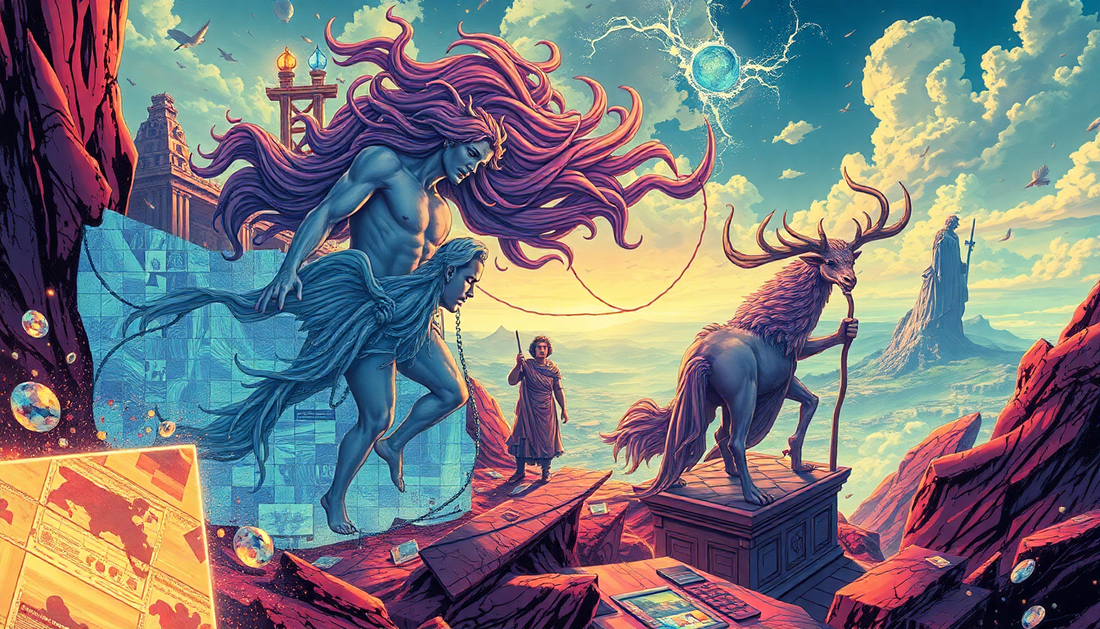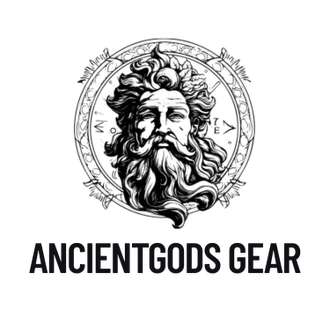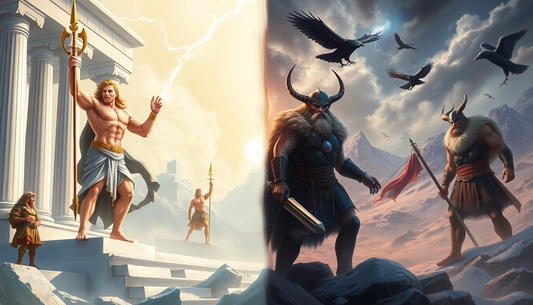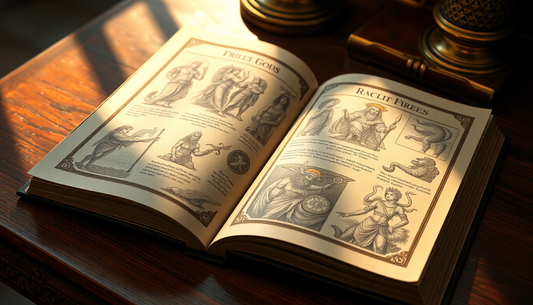
The Resurgence of Mythological Themes in Contemporary Media
In the ever-evolving landscape of popular culture, the influence of mythology has experienced a remarkable resurgence, captivating audiences across the globe. From blockbuster films to hit television series, the ancient tales of gods, heroes, and fantastical creatures have found a new lease on life, resonating with modern sensibilities and sparking a renewed fascination with the timeless narratives that have shaped our collective consciousness.
The Enduring Appeal of Mythology
Mythology, with its rich tapestry of archetypes, symbolism, and timeless themes, has long held a special place in the human experience. These stories, passed down through generations, have the power to transcend cultural boundaries, speaking to the universal human condition. As we navigate the complexities of the modern world, the allure of these mythological narratives lies in their ability to provide a sense of grounding, offering insights into the human experience that continue to resonate with audiences today.
The Universality of Mythological Themes
At the heart of mythology's resurgence is its ability to explore the fundamental questions of human existence. Themes of love, loss, heroism, and the struggle between good and evil have captivated audiences for centuries, and continue to do so in contemporary media. The archetypes and symbols that populate these mythological tales have become a shared language, allowing storytellers to tap into the collective unconscious and craft narratives that resonate on a deep, emotional level.
The Adaptability of Mythology
One of the key factors contributing to the rise of mythology in modern pop culture is its remarkable adaptability. Storytellers have recognized the versatility of these ancient tales, using them as a springboard to explore contemporary issues and concerns. By reinterpreting and reimagining mythological narratives, creators have been able to breathe new life into these timeless stories, making them relevant and accessible to modern audiences.
The Resurgence of Mythology in Contemporary Media
The influence of mythology can be seen across a wide range of media, from the silver screen to the small screen, and even in the virtual realms of video games and digital entertainment.
Mythology in Film and Television
Hollywood has long been captivated by the cinematic potential of mythological stories, with blockbuster films like "Wonder Woman," "Thor," and "Hercules" showcasing the enduring appeal of these narratives. These adaptations have not only entertained audiences but have also sparked a renewed interest in the original myths, driving viewers to explore the rich tapestry of these ancient tales.
In the realm of television, the success of series like "American Gods," "Outlander," and "Game of Thrones" has demonstrated the power of mythological storytelling to captivate modern audiences. These shows have seamlessly blended elements of fantasy, history, and mythology, creating immersive worlds that resonate with viewers on a deep, emotional level.
Mythology in Video Games and Digital Entertainment
The interactive nature of video games has provided a unique platform for the exploration of mythological themes. Titles like "God of War," "Assassin's Creed," and "Hades" have allowed players to immerse themselves in the rich, fantastical worlds of ancient myths, often with the opportunity to take on the roles of iconic mythological figures.
Beyond the realm of video games, the influence of mythology can be seen in the growing popularity of digital entertainment, such as podcasts, web series, and social media content. These platforms have provided a new avenue for storytellers to share and reinterpret mythological narratives, reaching a wider audience and fostering a deeper appreciation for these timeless tales.
The Significance of Mythology in the Modern Era
The resurgence of mythology in contemporary media holds profound significance, both for individuals and for society as a whole.
Mythology as a Lens for Self-Reflection
By engaging with mythological narratives, individuals are presented with the opportunity to explore their own identities, values, and place within the broader human experience. These stories often grapple with universal themes of identity, purpose, and the human condition, allowing viewers and readers to see themselves reflected in the struggles and triumphs of the mythological characters.
Mythology as a Tool for Cultural Understanding
In an increasingly globalized world, the shared language of mythology has the power to bridge cultural divides and foster a deeper understanding of diverse perspectives. By exploring the mythological traditions of different cultures, individuals can gain insight into the values, beliefs, and worldviews that have shaped the human experience across time and space.
Mythology as a Catalyst for Social Change
Mythology, with its ability to explore complex societal issues, has the potential to serve as a catalyst for social change. Storytellers have recognized the power of these ancient tales to address contemporary concerns, such as gender equality, environmental stewardship, and the pursuit of justice. By reinterpreting mythological narratives through a modern lens, creators can challenge existing norms and inspire audiences to re-examine their own beliefs and assumptions.
Conclusion
The resurgence of mythology in contemporary media is a testament to the enduring power of these ancient tales to captivate, inspire, and transform. As audiences continue to embrace the rich tapestry of mythological narratives, the influence of these timeless stories will undoubtedly continue to shape the cultural landscape, inspiring new generations to explore the depths of the human experience.


